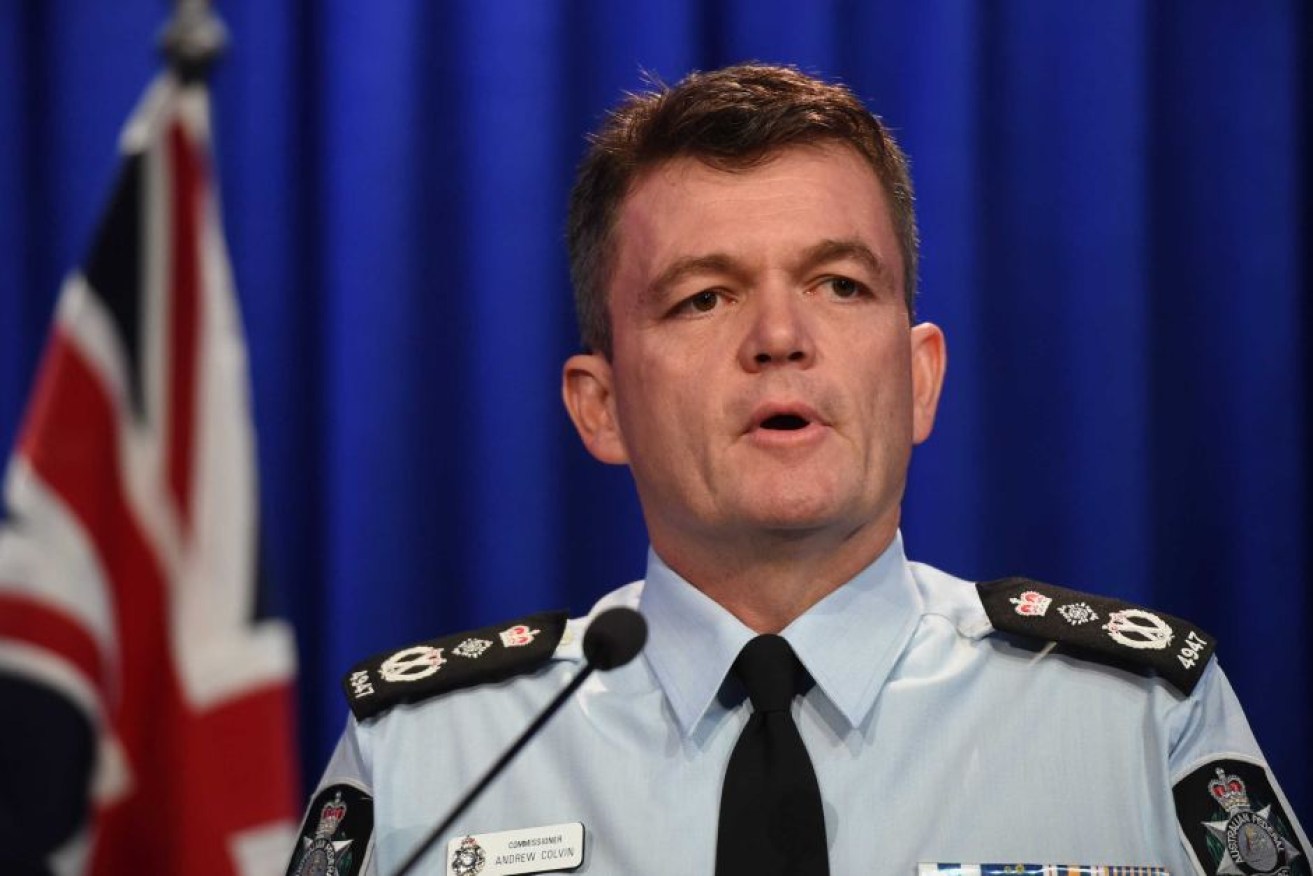Questions surround AFP’s response to metadata breach

AFP Commissioner Andrew Colvin says the new laws are needed. Photo: AAP
Forty-eight hours before Federal Police assured Australians they had amended internal rules to stop unlawful access to sensitive metadata, they were apparently still operating under guidelines that had led to at least one serious breach.
Written correspondence, obtained exclusively by The New Daily under freedom of information laws, suggests the Force was either telling Australians one thing publicly while doing another internally or that they hastily re-worked guidelines amid public and political pressure for change.
On April 28, AFP Commissioner Andrew Colvin told media that the agency had made “significant changes” to its internal practices after revealing that an investigator had breached metadata law by accessing a journalist’s phone records without a warrant.
Commissioner Colvin described the incident as a case of “human error”.
The AFP had raised the level of internal authorisation needed to access such information, limited the number of officers authorised to approve requests and boosted training to do with officers’ legal obligations, Commissioner Colvin said.
But in a letter sent just two days earlier, on April 26, AFP Deputy Commissioner Ramzi Jabbour told Commonwealth Ombudsman Doris Gibb that its “Aide Memoir” outlining the procedures to obtain a Journalist Information Warrant (JIW), issued in 2015, remained “accurate”.
While stating that “internal procedures have been reviewed”, the letter makes no reference to any of the reforms publicly announced two days later by Commissioner Colvin.
Instead, it informs the watchdog’s office of the AFP’s intention to add a prompt to the application form for the specialised warrant. This prompt, according to the letter, would ask the officer if the request is to identify a journalist’s source, directing him or her to existing guidelines for obtaining a journalist warrant in such cases.
Asked to explain the apparent discrepancy between the letter and public statements, and to clarify what changes had been made, an AFP spokesperson told The New Daily: “The process for authorising access to metadata has been amended so that where a JIW is required, it cannot be progressed in the absence of the warrant details. This is intended to prevent the recurrence of a similar breach.”

The agency said “internal procedures have been reviewed” but a letter obtained by TND makes no reference to any reforms publicly announced two days later. Photo: AAP
The AFP declined to comment on the circumstances behind the breach, pointing to an ongoing investigation by the Ombudsman.
The letter, however, sheds light on the cause of the incident, which Commissioner Colvin has insisted had no “ill will or malice or bad intent”, explaining that the officer in question was unfamiliar with the “full suite” of the amendments passed by the Abbott government in 2015.
Authorities must obtain a warrant to access journalists’ metadata, a process that occurs in secret, but are not similarly restricted for other members of the public. While not including the content of conversations, metadata can reveal who a person has called or emailed, as well as the dates and times of their correspondence.
Privacy and media advocates have been highly critical of Australia’s metadata retention laws, which they say give authorities too much scope to monitor private communications and jeopardise the ability of journalists to protect their sources.
“Despite all of the requirements put in place before a Journalist Information Warrant can be granted, the system has failed,” Katelin McInerney, media director for the Media Entertainment and Arts Alliance, told The New Daily.
“It demonstrates that there is very little understanding of the press freedom concerns that we have been raising with politicians and law enforcement officials for several years now. This latest example shows that an over-zealous and cavalier approach to an individual’s metadata is undermining the right to privacy and the right of journalists to work with their confidential sources.”







